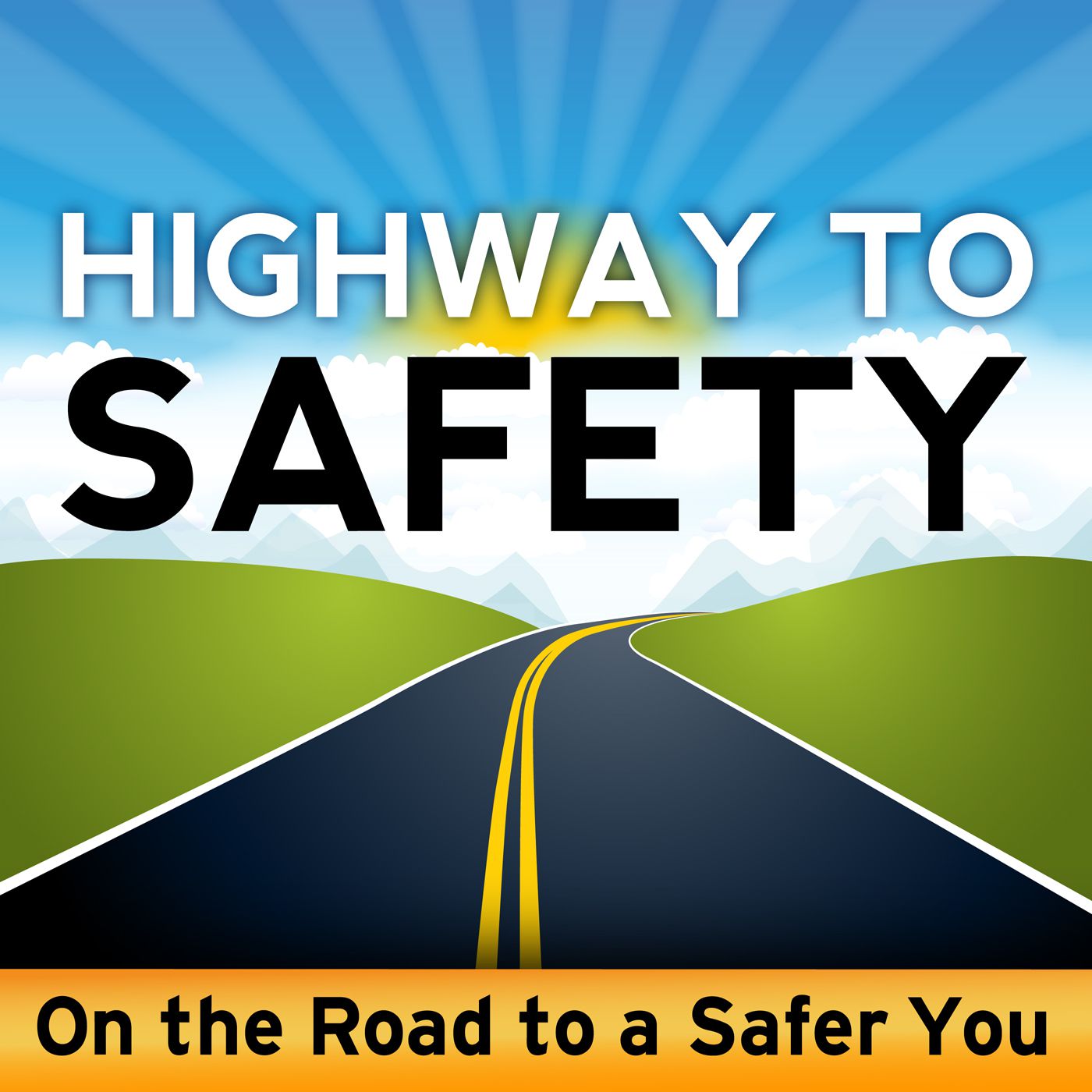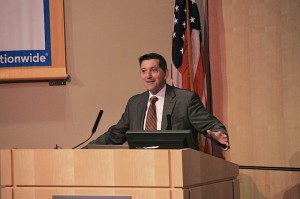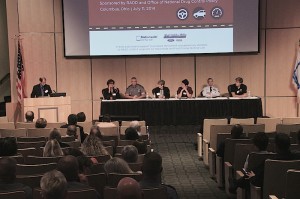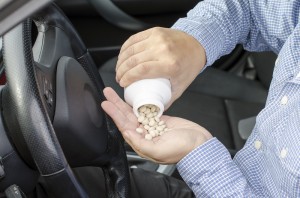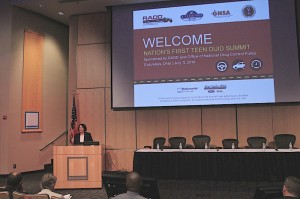27 – Teen Drugged Driving: What You Can Do About It
Description
Did you know that:
- 1 in 8 weekend nighttime drivers tested positive for illicit drugs in 2007?
- 1 in 3 fatally injured drivers who were tested, tested positive for some type of illicit drug in 2010?
- In a national survey of high school seniors, 1 in 8 admitted to using marijuana and then driving in the 2 weeks prior to the survey?
Drugged Driving is a global problem where more people are using some type of drug, whether it is over-the-counter, prescribed, or illicit, and then trying to drive. Many drugs affect our mental and/or physical abilities; that means our driving abilities are impaired if we try to drive after taking the drug. But there are actions we can all take to be aware and proactive in ending this killer.
RADD-ONDCP Teen Drugged Driving Summit
To discuss drugged driving and more specifically teen drugged driving, RADD and the Office of the National Drug Control Policy (ONDCP) co-hosted the nation’s first comprehensive public forum on teen drugged driving. The summit brought together government leaders, scientific experts and community leaders for an in-depth discussion on the latest research and strategies to protect young drivers.
While present at this ground-braking summit, I spoke with a number of the speakers and dignitaries and got their viewpoints on drugged driving and its impact on today’s teens. This episode is a compilation of their comments and an examination of the teen drugged driving issue.
In this episode you will hear from (in alphabetical order):
- Jonathan Adkins, Executive Director, GHSA
- Michael Botticelli, Acting Director, ONDCP
- Jason Demeter, National Student Leadership Council, SADD
- Dr. James Lange, Research Director, RADD
- Erin Meluso, President, RADD
- Sgt. Wesley Stought, Ohio DRE Coordinator, OSHP
- Penny Wells, President & CEO, SADD
- Michael Witter, Region 5 Administrator, NHSTA
Based on our conversations, we examine three questions:
- Is teen drugged driving a problem?
- What do we mean when we say “drugged driving?”
- What do we do about it?
Is Teen Drugged Driving A Problem?
There is no question that drugged driving, and teen drugged driving is a problem. The number and percentage of people who are driving and testing positive for drugs is increasing at a steady rate. A conservative estimate now shows that drugged driving causes 20% of the crashes in the U.S.
Part of the reason for the increasing numbers is the lack of awareness of the issue. MADD and other organizations have done a fantastic job in stigmatizing drinking alcohol and driving, however, the message hasn’t carried over to include other drugs. There is this mistaken belief that by using certain drugs, including marijuana, we are safer drivers. The research proves otherwise. Any drug that impacts our mind, also impacts our driving skills.
What do we mean when we say “Drugged Driving?”
When many people hear the phrase “drugged driving” they automatically think of illegal drugs. However that is only a portion of the drugs causing the burgeoning drugged driving crisis. Drugged driving does occur with the use of illicit drugs, but it can also happen with the use of prescription or over-the-counter medication. Most drugs are designed to affect us, even when used as instructed, such as: reducing pain, stopping an allergic reaction or helping us to fall asleep. It is that effect that can also impair our driving abilities. Labels on medicine bottles commonly have the phrase: “Do not drive or operate heavy machinery while taking the medicine.” A car is heavy machinery. When taking any type of medicine it is important to read the labels and understand how it will affect you.
Drugged driving also includes the use of illicit drugs such as heroin, methamphetamine, and marijuana. The NHTSA Roadside Survey from 2007 found that of the nighttime drivers tested, marijuana was the most commonly detected illicit drug followed by Cocaine and Methamphetamine.
States like Colorado and Washington now allow the use of marijuana and its impact on our highways has grown significantly. This is also true in those states that have “medical marijuana.” In a report entitled: The Legalization of Marijuana in Colorado—The Impact, the percentage of traffic fatalities where the driver tested positive for marijuana doubled from 2007 to 2012. This is in spite of a 14.8% reduction in overall traffic fatalities during the same time.
What can we do about Teen Drugged Driving?
The first response to this question from everyone was the essential requirement of increasing the awareness of drugged driving. We all need to learn more about the issue, understand that drugged driving is occurring everywhere and find out what are some steps we can take to prevent it. Furthermore, going beyond an understanding of the issue, there has to be a self-awareness of any drug use. Too many people do not understand the risks many drugs create; they are taking the drugs and then driving, putting themselves and everyone else on the road in harms way. One useful tool in raising awareness is the ONDCP Teen Drugged Driving: Community Awareness Activity Toolkit. The toolkit provides community groups with the facts on the dangers of teen drugged driving, and activities to assist in its prevention.
Parental involvement was the second answer to the question of ending teen drugged driving. Parents play a pivotal role in educating their teens. As a parent, you can provide good information to your children along with setting clear expectations on what is the expected behavior. As declared by ONDCP Director Botticelli: “Parents are probably the best prevention program that we have.”
Everyone also agreed that to impact teen drugged driving, teens must be at the table, assisting with the development of the message as well as sharing it with other teens. Peer-to-peer messaging is one of the most effective methods of sharing a message; we are more likely to listen to our peers than an outsider who is trying to influence us. This is true for adults as well as teens.

